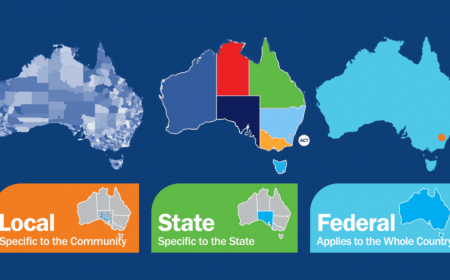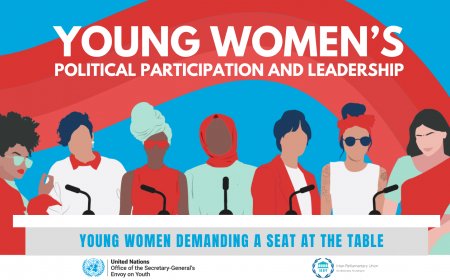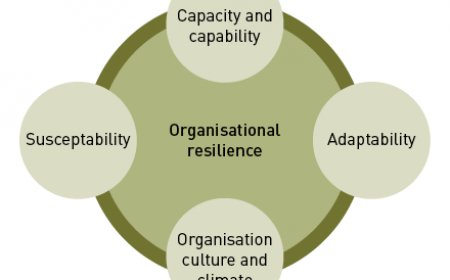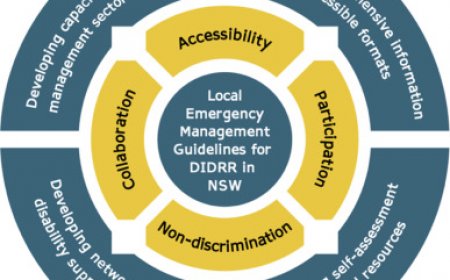Politics: Corruption Scandals and Accountability Measures
Explore the causes, consequences, and solutions surrounding corruption scandals and accountability measures in politics. Learn how transparency, legal frameworks, and citizen participation can combat corruption effectively.
In today’s world, corruption scandals have become a defining issue that threatens the very fabric of democratic governance. From high-profile cases involving public officials to systemic issues within institutions, these scandals erode public trust and hinder progress. At the same time, accountability measures serve as critical tools to combat corruption, ensuring transparency and justice. This article delves into the intricate dynamics of corruption scandals, explores their far-reaching consequences, and evaluates the effectiveness of accountability mechanisms designed to restore integrity in political systems.
Understanding Corruption Scandals: Causes and Consequences
What Defines a Corruption Scandal?
A corruption scandal occurs when individuals or entities in positions of power misuse their authority for personal gain, often at the expense of the public interest. These scandals can manifest in various forms, including bribery, embezzlement, nepotism, cronyism, and abuse of power. The scale of such scandals ranges from isolated incidents to widespread systemic corruption that permeates entire governments or organizations.
"Corruption is a cancer that eats away at the foundations of democracy, undermining trust in institutions and stifling economic growth."
— Transparency International
Root Causes of Corruption Scandals
Several factors contribute to the prevalence of corruption scandals in politics:
-
Weak Governance Structures : When oversight mechanisms are inadequate or non-existent, corrupt practices thrive unchecked. For example, countries with poorly enforced regulations or weak judicial systems often experience rampant corruption. Without proper checks and balances, those in power may exploit loopholes for personal benefit.
-
Lack of Transparency : Governments or organizations that fail to disclose financial transactions or decision-making processes create opportunities for misconduct. Secrecy breeds mistrust and allows illicit activities to go unnoticed. Public access to information is essential for holding leaders accountable.
-
Cultural Norms : In some societies, corruption may be normalized or even expected, making it difficult to eradicate. Cultural attitudes toward gift-giving, favoritism, or patronage can blur ethical boundaries and perpetuate corrupt behavior.
-
Economic Pressures : Financial instability or inequality can drive individuals to engage in unethical behavior for survival or profit. In times of economic hardship, desperation may lead people to compromise their values.
-
Political Patronage : Politicians who prioritize loyalty over merit often perpetuate cycles of favoritism and graft. Appointing friends or allies to key positions undermines professionalism and creates networks of mutual benefit that bypass formal rules.
-
Globalization and Cross-Border Networks : As economies become more interconnected, so do opportunities for corruption. Multinational corporations and international trade agreements sometimes facilitate illicit deals across borders, complicating efforts to hold wrongdoers accountable.
-
Technological Advancements : While technology has the potential to reduce corruption through increased transparency, it also introduces new avenues for exploitation. Cybercrime, digital fraud, and hacking have emerged as modern forms of corruption that challenge traditional accountability measures.
-
Media Suppression : In many authoritarian regimes, independent media outlets are silenced or co-opted by the state. Without investigative journalism to expose wrongdoing, corruption flourishes unchallenged.
-
Public Apathy : When citizens feel disempowered or disconnected from the political process, they are less likely to demand accountability. Voter apathy enables corrupt politicians to operate without fear of repercussions.
Impact on Society
The consequences of corruption scandals extend beyond individual wrongdoing; they affect society as a whole:
-
Erosion of Public Trust : Citizens lose faith in their leaders and institutions, leading to apathy and disengagement. When people perceive that the system is rigged against them, voter turnout declines, protests increase, and social cohesion weakens.
-
Economic Losses : Misallocation of resources hampers development projects, increases costs, and deters foreign investment. Corruption inflates prices, delays infrastructure improvements, and diverts funds away from essential services like healthcare and education.
-
Social Inequality : Corruption disproportionately impacts marginalized communities, exacerbating poverty and injustice. Poorer populations bear the brunt of reduced public spending while elites enrich themselves at taxpayers' expense.
-
Undermining Rule of Law : When laws are selectively enforced or ignored altogether, the legal system loses credibility. Impunity emboldens offenders and discourages whistleblowers from coming forward.
-
Environmental Degradation : Corrupt practices often involve illegal logging, mining, or wildlife trafficking, which devastate ecosystems and threaten biodiversity. Environmental regulations are flouted when bribes replace compliance.
-
Healthcare Crises : Diverted funds mean fewer hospitals, clinics, and medical supplies. During pandemics or natural disasters, corruption can cost lives by delaying emergency responses or distributing substandard equipment.
-
Educational Setbacks : Embezzled budgets result in overcrowded classrooms, underpaid teachers, and outdated materials. Future generations suffer when education systems are starved of resources.
Accountability Measures: Tools to Combat Corruption
What Are Accountability Measures?
Accountability measures refer to policies, frameworks, and mechanisms designed to hold individuals and institutions responsible for their actions. These measures aim to prevent, detect, and punish corrupt practices while promoting ethical conduct. They encompass both proactive strategies (such as training programs) and reactive ones (like investigations).
Types of Accountability Mechanisms
-
Legal Frameworks : Anti-corruption laws, whistleblower protection acts, and codes of ethics establish clear guidelines for acceptable behavior. Countries with comprehensive legislation tend to see lower levels of corruption compared to those without.
-
Independent Oversight Bodies : Agencies like anti-corruption commissions or ombudsman offices monitor compliance and investigate allegations. Their independence is crucial; otherwise, they risk being influenced by vested interests.
-
Transparency Initiatives : Open data portals, freedom of information laws, and public audits ensure visibility into government operations. By publishing budgets, contracts, and performance metrics online, authorities invite scrutiny and deter wrongdoing.
-
Civil Society Engagement : Non-governmental organizations (NGOs) and media outlets play a crucial role in exposing wrongdoing and advocating for reform. Grassroots movements amplify voices demanding change and pressure policymakers to act.
-
Technological Solutions : Digital platforms and blockchain technology enhance traceability and reduce opportunities for fraud. E-procurement systems, biometric identification, and AI-powered analytics help streamline processes and flag anomalies.
-
International Cooperation : Global initiatives like the United Nations Convention Against Corruption (UNCAC) foster collaboration among nations. Shared databases, extradition treaties, and joint task forces enable cross-border investigations.
-
Whistleblower Protections : Safeguarding individuals who report misconduct encourages others to come forward. Anonymous tip lines, legal safeguards, and financial incentives incentivize insiders to expose corruption.
-
Ethics Training Programs : Educating public servants about ethical dilemmas prepares them to navigate complex situations. Role-playing exercises, case studies, and mentorship programs reinforce core values.
-
Performance Audits : Regular evaluations assess whether agencies are meeting their objectives efficiently and fairly. External auditors provide unbiased assessments and recommend improvements.
-
Judicial Reforms : Strengthening courts ensures swift and impartial adjudication of corruption cases. Judges must remain insulated from political interference to maintain public confidence.
Effectiveness of Accountability Measures
While accountability measures are essential, their success depends on proper implementation and enforcement. For instance:
- Countries with strong judicial independence tend to see better outcomes in prosecuting corruption cases.
- Transparent procurement processes significantly reduce instances of bid rigging and kickbacks.
- Public participation in governance fosters collective responsibility and vigilance against malfeasance.
However, challenges persist:
- Resistance from entrenched elites can block reforms.
- Limited funding restricts the capacity of oversight bodies.
- Cultural resistance to change slows adoption of new practices.
- Political polarization undermines bipartisan support for anti-corruption efforts.
Case Studies: Notable Corruption Scandals Around the World
Brazil's Operation Car Wash
Operation Car Wash (Lava Jato) was one of the largest anti-corruption investigations in history, uncovering billions of dollars in bribes involving state-owned oil company Petrobras. Key figures implicated included top executives, politicians, and business leaders. While the operation led to numerous convictions, critics argue it also polarized Brazilian politics and raised concerns about due process.
Key Takeaways:
- Independent prosecutors played a pivotal role in unraveling the scheme.
- Media coverage kept public pressure high throughout the investigation.
- Fallout included mass resignations, policy changes, and renewed calls for electoral reform.
Malaysia's 1MDB Scandal
The 1Malaysia Development Berhad (1MDB) scandal involved the misappropriation of $4.5 billion from a sovereign wealth fund. Former Prime Minister Najib Razak was sentenced to prison for his role in the scheme. This case highlighted the dangers of unchecked executive power and underscored the importance of robust financial controls.
Key Takeaways:
- Whistleblowers provided critical evidence linking offshore accounts to Malaysian officials.
- International cooperation facilitated asset recovery efforts spanning multiple jurisdictions.
- Public outrage fueled demands for greater transparency in government finances.
South Korea's Choi Soon-Sil Gate
Choi Soon-sil, a close confidante of former President Park Geun-hye, exploited her influence to extort money from major corporations. The scandal sparked nationwide protests and ultimately resulted in Park's impeachment. It demonstrated how personal relationships can undermine institutional integrity.
Key Takeaways:
- Citizen activism drove momentum behind impeachment proceedings.
- Corporate complicity revealed weaknesses in corporate governance standards.
- Reforms introduced stricter lobbying rules and enhanced disclosure requirements.
Comparing Global Approaches to Fighting Corruption
Tips for Strengthening Accountability in Politics
- Foster a culture of integrity by rewarding ethical behavior and penalizing misconduct.
- Invest in education programs that promote civic awareness and moral values.
- Encourage media freedom to expose wrongdoing without fear of retaliation.
- Leverage technology to streamline processes and minimize human intervention.
- Engage citizens through participatory budgeting and community forums.
- Strengthen judicial independence to ensure fair trials and timely resolutions.
- Promote international partnerships to tackle transnational corruption networks.
- Monitor campaign financing to prevent undue influence by wealthy donors.
- Conduct regular audits to identify vulnerabilities and implement corrective actions.
- Establish hotlines for anonymous reporting of suspicious activities.
Review: Verdict on Current Accountability Efforts
Despite significant advancements in combating corruption, challenges remain. Many countries struggle to balance political will with practical execution. However, successful examples show that sustained commitment to transparency, inclusivity, and innovation can yield positive results. Moving forward, collaboration between governments, civil society, and international partners will be vital in addressing this global issue.
Conclusion
Corruption scandals continue to pose a grave threat to democratic governance and societal well-being. However, effective accountability measures offer hope for restoring trust and ensuring fairness. By learning from past mistakes and adopting best practices, nations can build resilient systems capable of resisting corruption. As we navigate an increasingly complex world, the fight against corruption must remain a top priority for all stakeholders.
Frequently Asked Questions (FAQs)
1. What is a corruption scandal?
A corruption scandal involves misuse of power for personal gain, often harming public interests.
2. How do corruption scandals impact economies?
They lead to resource misallocation, increased costs, and reduced investor confidence.
3. What are common types of corruption?
Bribery, embezzlement, nepotism, and cronyism are prevalent forms.
4. Why is accountability important in politics?
It ensures transparency, deters misconduct, and upholds the rule of law.
5. What role does civil society play in fighting corruption?
NGOs and media expose wrongdoing and advocate for reforms.
6. Can technology help combat corruption?
Yes, digital tools enhance traceability and reduce opportunities for fraud.
7. What lessons can be learned from Operation Car Wash?
Strong enforcement and independent investigations are critical but must respect due process.
8. How does corruption affect marginalized groups?
It exacerbates poverty and widens social inequalities.
9. What makes anti-corruption efforts successful?
Political will, robust legal frameworks, and public support are key factors.
10. How can citizens contribute to accountability?
By staying informed, reporting suspicious activities, and participating in governance.
What's Your Reaction?
 Like
0
Like
0
 Dislike
0
Dislike
0
 Love
0
Love
0
 Funny
0
Funny
0
 Angry
0
Angry
0
 Sad
0
Sad
0
 Wow
0
Wow
0














































